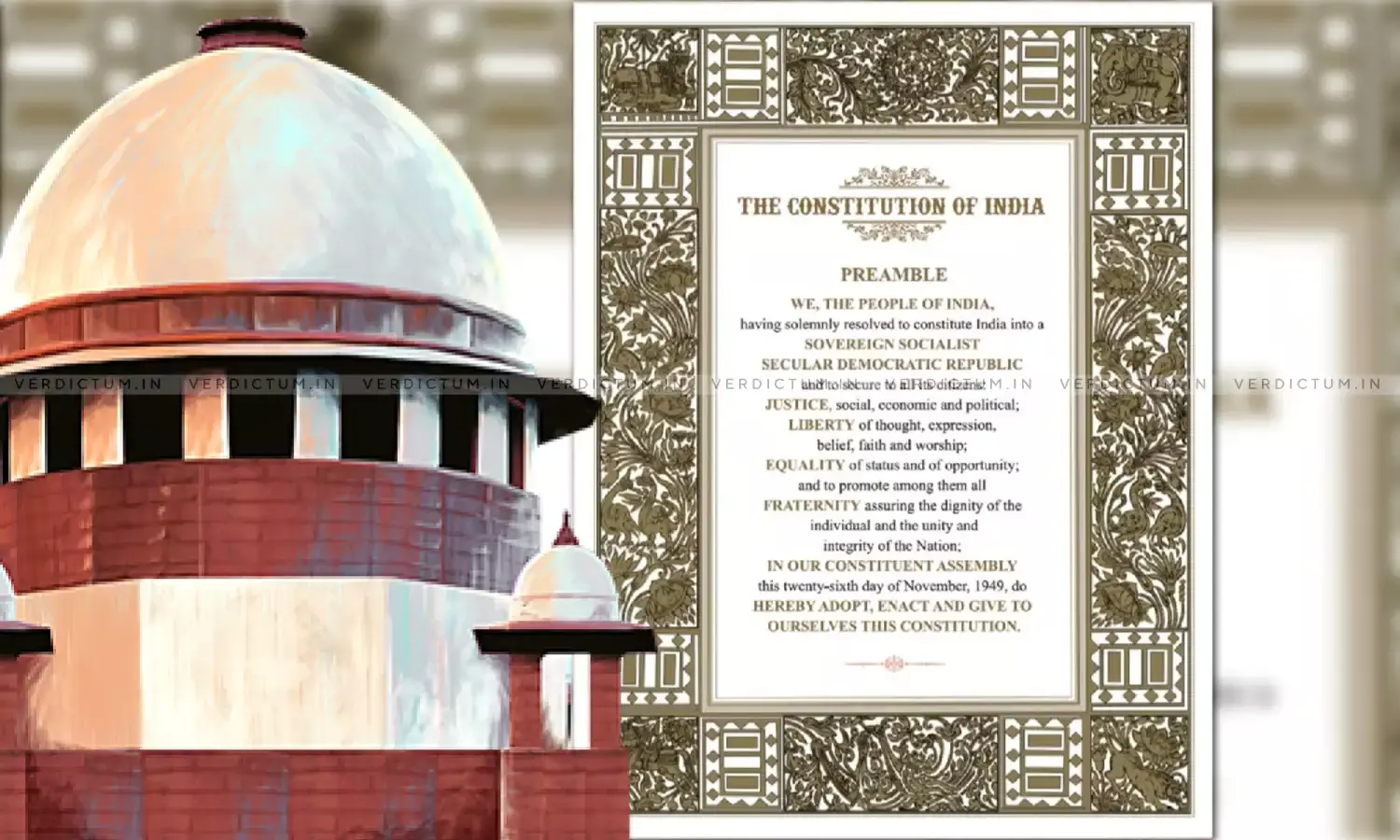Parliament's Power To Amend Extends To Preamble: Supreme Court Dismisses Petitions Against Inclusion Of 'Socialist' And 'Secular' In Constitution's Preamble
The Supreme Court today held that the Parliament's power to amend extends to the Preamble to the Constitution, while dismissing a batch of petitions challenging the process of inclusion of the words 'socialist' and 'secular' to the Preamble, arguing, among other things, that the Parliament made alterations to the Preamble without taking into account the adoption date mentioned in it, that is, November 26, 1949.
A two-Judge Bench of Chief Justice of India Sanjiv Khanna and Justice Sanjay Kumar, while dictating the Order said, "The Writ Petitions do not require detailed adjudication as the weaknesses in the arguments are obvious and manifest. The two expressions 'secular' and 'socialist' and the word 'integrity' were added in the Preamble via 42nd Constitutional Amendment 1976. Article 368 permits amendments to the Constitution. The power to amend unquestionably rests with the Parliament (and) the amending powers extend to the Preamble".
The Bench rejected the Petitioners' argument that the Parliament had retrospectively changed the text of the Preamble in 1976, creating an inconsistency with the adoption date mentioned in the Preamble. A batch of three Writ Petitions were before the Bench, one each by Dr. Subramanian Swamy, Advocate Ashwini Kumar Upadhyay and one Balram Singh.
"The fact that the Constitution was enacted and given to themselves by the people of India on 26th day of November, 1949 does not make any difference. The date of adoption will not curtail or restrict the power under Article 368 of the Constitution. The retrospectivity argument if accepted, would equally apply to any part of the Constitution and the power of the Parliament to do so under Article 368 is incontrovertible and not under challenge," the Court said.
Towards the end of the dictation of the Judgment, Justice Khanna remarked, "We have also said, it has been so many years. Why rake up an academic issue at this time?"
During the last hearing, the CJI had remarked that Socialism means 'welfare State' in the Indian context.
During the course of an earlier hearing, Dr. Swamy had submitted the date mentioned in the Preamble “will have to be rectified.” He suggested that the Preamble be divided into two parts, one with a date and another without, or with two different dates.
Advocate Vishnu Jain had submitted that the Preamble came with a particular date, and this aspect was not debated upon when the Parliament made alterations to the Preamble through the 42nd Amendment in 1976. His petition sought the striking down of the words 'socialism' and 'secularism' from the Preamble and from Section 29A(5) of the Representation of the People Act, 1951. It also sought a declaration that the State has “no power and jurisdiction to compel citizens of India to abide by the principles of socialism and secularism.”
Responding to the Petitioners' arguments, Justice Khanna had said socialism can also mean that there should be equality of opportunity, that the assets or the wealth of the country are distributed equally and that there should be fair opportunity. “Let’s not take the western meaning of socialism.”
On secularism too, Justice Khanna indicated that a narrow interpretation be not given to the word. “There are a number of judgments where we have said secularism is a part-and-parcel of the Constitution and it has been given the status of an unamendable portion of the Constitution. The word socialist has a different connotation in the West, but we have not followed that model,” he said.
Ashwini Upadhyay had submitted the insertion of words into the Preamble opened a Pandora’s Box, with the implication that any word could be added or omitted by the Parliament. “Tomorrow democracy can be removed. Anything can happen,” he cautioned.
Cause Title: Balram Singh And Ors. v. Union of India [W.P.(C) 645/2020]



